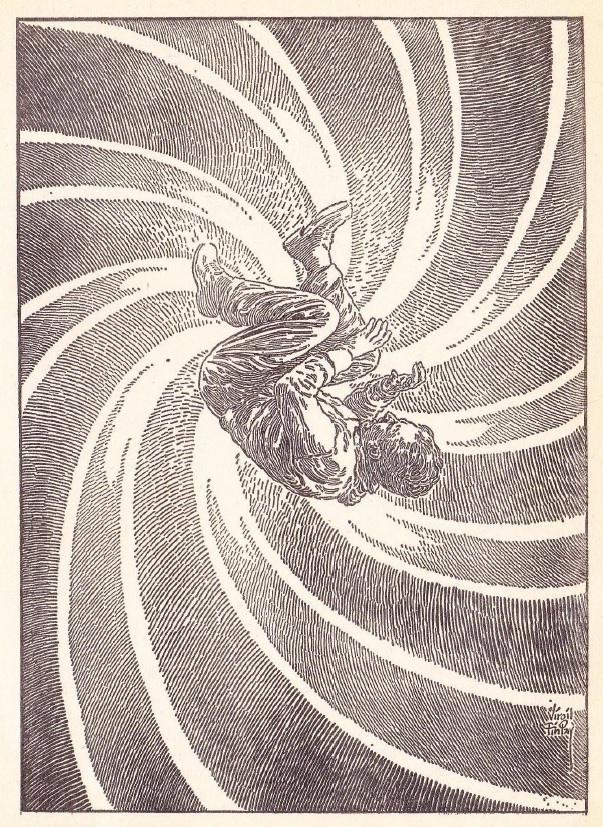
by John Boston
Last issue, new editor Barry Malzberg declared that “the majority of modern magazine science-fiction is ill-written, ill-characterized, ill-conceived and so excruciatingly dull as to make me question the ability of the writers to stay awake during its composition,” and proposed to use Amazing and Fantastic to promote the “rebirth—one would rather call it transmutation—of the category.”

by Johnny Bruck
Now, in this March Amazing, Barry is gone. Sol Cohen, listed as Publisher last issue, is now Editor and Publisher. Laurence M. Janifer is listed as Associate Editor, and contributes a guest editorial and a movie review. Ted White, new to the masthead, is listed as Managing Editor. Most likely he will actually be editing the magazine, having been Assistant and then Associate Editor at Fantasy and Science Fiction until mid-1968.
But as a great philosopher said, you can predict anything but the future. What we have right now is the last issue of the Malzberg editorship, credited or not, which we know since the new stories are the ones he announced in the last issue.
So why his sudden departure? I had a conversation with Barry, and he reported that it had nothing to do with the direction he proposed for the magazine’s fiction or his jaundiced account of the state of the field. Rather, he bought a cover, which he understood he was authorized to do, and said he would quit if Cohen did not allow him to run it. Cohen responded, "I don't know anything about stories but I do know about art and I can't run this cover. [Pause] You're fired." Barry adds, on reflection, that Cohen was right, and there’s no resentment on his part.
But back to the issue before us. Overall, it’s business as usual: another tiresome cover by Johnny Bruck, four new short stories (mostly very short) and the conclusion of a new serialized novella, and three reprinted novelets. There is the usual "Science of Man" article by Leon E. Stover, and the usual book review column, credited as before to William Atheling, Jr., the not-at-all secret pseudonym of James Blish–though the review of The Making of Star Trek is bylined Blish (who is also the author of several Star Trek paperbacks). Janifer’s above-mentioned movie review is about Hot Millions, a scientific heist film in which Peter Ustinov, as an embezzler, goes up against a giant computer. (Before long, I am sure, there will need to be a name for such a villain. Computer . . . hijacker? Nah, too cumbersome.)
We All Died at Breakaway Station (Part 2 of 2), by Richard C. Meredith
Richard Meredith’s two-part serial novella, We All Died at Breakaway Station, concludes here. It may well be the most downbeat space opera ever published. Earth is at war with the Jillies. Protagonist Captain Absolom [sic] Bracer has been killed in battle and resurrected, and is now hideously disabled and disfigured and patched up with mechanical parts, since there are no replacements to allow him to return to Earth for more seemly regeneration. Also he is tormented by phantom pain from the missing parts, as well as the psychological impact of his mutilated condition. His fellow officers are all in similar shape.

by Dan Adkins
Bracer is charged with escorting a hospital ship full of other casualties back to Earth for better treatment. But he learns that the relief ships from Earth to Breakaway, a barren planet where the essential faster-than-light communications link to Earth is located, are days away from arriving. He decides to delay departure so he and his subordinates will be around to protect Breakaway from the expected Jillie attack. This set-up of course leads to a lot of slam-bang action, with continuing death, destruction, and angst (though a note of glee does creep in here and there), and then the probably obligatory tragic but uplifting ending.
The writing is amateurish in places but quite readable even as one is noting that Meredith is going on much too long about things that don’t advance the narrative, playing silly games with chapter divisions (there are 36 of these in 79 pages, one of which is four lines long), and writing dialogue some of which seems lifted from World War II B-movies. But there’s actually a story here, the author is clearly having a good time, and it’s infectious as long as you manage your expectations. Three stars.
The Invasion of the Giant Stupid Dinosaurs, by Thomas M. Disch

by Bruce Jones
Thomas M. Disch, whose career started in Amazing and Fantastic, makes his first appearance here of the Sol Cohen era. The Invasion of the Giant Stupid Dinosaurs is a short jokey First Contact story involving a spaceship landing on the property of a small town church. It is archly told in a fussily stilted style possibly meant to remind the reader of The War of the Worlds (though Wells was generally not arch, stilted, or fussy). It’s well turned, as always with Disch, but trivial. Three stars, mostly for style.
The Aggressor, by John T. Sladek
John T. Sladek’s The Aggressor is also short, highly surreal, and seemingly an exercise in dream logic or a satire on the very idea of a story. Or maybe—since the main character (loosely speaking) is the head of a large computer corporation—it’s supposed to be the output of a defective computer, or perhaps a very advanced one that is unexpectedly beginning to achieve consciousness. Sometimes Sladek’s humor escapes me entirely, and this is one of them. This dog is too damn shaggy! Two stars; at least the guy can write.
Prelude to Reconstruction, by Durant Imboden
Durant Imboden is an assistant fiction editor at Playboy, says the blurb to his story Prelude to Reconstruction, with one prior SF magazine appearance. The story is a slightly rambling farce about a future authoritarian USA in which the work is all done by robots, who are supervised by the Ministry of Slaves. The robots have to be kept in line lest they get funny ideas about slaving for humans; so Cerebra-1, a giant computer, is devised to monitor their loyalty quotients and reorient those needing it.

by Bruce Jones
But now Cerebra-1 is getting balky, spitting out ancient political slogans, and things only get worse fast for humans (and the story ceases to be so farcical). Problem is Imboden hasn’t quite caught on to “show, don’t tell,” so most of the story is the author recounting events after the fact without dialogue or even on-stage characters for stretches of it. There’s also very little background on exactly what the robots’ and Cerebra-1’s capabilities and limits are, so the analogy to American human slavery (which becomes explicit at the end) falls flat, and there’s not much to be interested in conceptually. Two stars.
In the Time of Disposal of Infants, by David R. Bunch
David R. Bunch, an avowed editorial favorite, is here again with In the Time of Disposal of Infants, listed among the new stories, but in fact new only to professional publication. It first appeared in the fanzine Inside #13 (January 1956) along with five other Bunch stories. It is much more sedate stylistically than his later work, but outrageous enough in content. The title says it; the story is narrated by a garbage collector whose team finds a four-year-old among the refuse—surprisingly, since if they last that long, the parents usually keep them. Three stars.
The Man in the Moon, by Mack Reynolds
The first of the acknowledged reprints is Mack Reynolds’s The Man in the Moon (from Amazing, July 1950) , a very early story (his eighth, appearing three months after the first). It amounts to a tutorial about early space flight, now thoroughly outmoded and a bit boring. Protagonist Jeff Stevens and two of his fellow trainee astronauts are bundled off to the Moon in separate ships; their voyage was preceded by some unsuccessful (i.e., fatal) tries, and by a number of unmanned ships carrying supplies and materials.

by Leo Summers
Only Stevens makes it, and he proceeds (despite a broken arm) to assemble several of the unmanned ships into a base. Human, as opposed to mechanical, interest is provided by the repeated reminders that Stevens is sensitive about being short, and by the fact that his sometime girlfriend left him for one of the other astronauts, who died on an earlier expedition. But it’s all right, because he finds that astronaut’s body where he expired in his spacesuit in the line of duty. “’Last Brenschluss, spaceman,’ he whispered.” Hackneyed, maudlin, two stars, generously.
Ask a Foolish Question, by Milton Lesser
Milton Lesser’s Ask a Foolish Question (Fantastic Adventures, June 1952) is a slickly rendered dystopian story. In this world, most people work long hours for low pay, living in barracks, in order to support the space colony Utopia, where, it is said, everybody lives a lot better. That’s OK, since the Earth dwellers regularly get the chance to take examinations to see if they can qualify to space out, and some win and depart.

by Tom Beechem
But Citizen Gregory Jones has been notified by the Department of Prognostication that he is to die in five days. After some plot maneuvers not worth recounting, he winds up killing a government employee, faking his own death a day early, and then impersonating the government man. But in that fake role, he is given the choice of dying when Jones would have died, or going to Utopia with the lucky exam-winners, since the government can’t allow anyone to stick around who knows that a prognostication didn’t occur on schedule. Of course, he chooses Utopia, and the next events show that Lesser has clearly taken note of The Marching Morons. And there's another twist before the end. Derivative but well turned; three stars.
Death of a Spaceman, by Walter M. Miller, Jr.
In Walter M. Miller, Jr.’s Death of a Spaceman (Amazing, March 1954), Old Donegal is a retired spacer bedridden and dying of cancer, though nobody but him acknowledges it, and he goes along with the pretense that he’ll be well before long. Going to space is a pretty rotten blue-collar job (it killed his son-in-law), his pension and his daughter’s widow’s benefits are lousy, but Donegal can’t let go of it—he wants to stay alive long enough to hear the evening rocket blasting off from the nearby spaceport, demanding that his space boots be put on for the occasion after the priest has come by to administer the last rites.
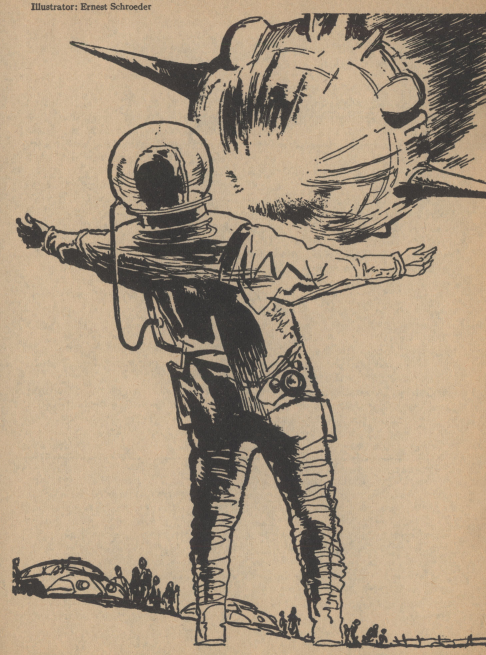
by Ernest Schroeder
It’s well written and clearly heartfelt (though thankfully less febrile than the other early Miller stories Amazing has reprinted (like Secret of the Death Dome and The Space Witch), but thoroughly maudlin and hard to take too seriously, especially by comparison with the much better stories Miller was already known for (e.g., Conditionally Human and Dark Benediction). Three stars.
Science of Man: Apeman, Superman —Or, 2001's Answer to the World's Riddle, by Leon E. Stover
Leon E. Stover’s “Science of Man” article this issue is Apeman, Superman—or, 2001’s Answer to the World’s Riddle, which eschews the usual anthropology for a long synopsis of the film, superfluously I suspect to most readers. Stover’s interpretation: humans spreading into space will be good (contra C.S. Lewis), we’ll leave all the bad stuff behind along with our bodies, sort of like Pierre Teilhard de Chardin explains: “the gathering force of mind that has come to envelope the surface of the planet Earth must eventuate in a projection into space as a purely spiritual component that will converge ultimately at the Omega point in one single entity, the very stuff of God. But once all the consciousness of the universe has accumulated and merged in the Omega point, God will get lonely in his completeness, and the process of creation must begin again by way of arousing conscious creatures to reach out once more for closure in one collective identity.” Ohhh-kay, whatever you say, chief. Next, Stover quotes Nietzsche, and adds: “Now that the theologians tell us that God is dead, it appears that the burden of theology is upon SF.” Three stars, it’s amusing and probably harmless, but Stover should probably get back to writing what he knows.
Summing Up
At Amazing, the beat goes ever ever on, ever more wearily, with some worthwhile material, but burdened by the weight of mostly lackluster reprints. The ambitious new editor is gone. The apparent new editor is well qualified, but will he be allowed to give the magazine the makeover it needs? Yet again, wait and see.
[Come join us at Portal 55, Galactic Journey's real-time lounge! Talk about your favorite SFF, chat with the Traveler and co., relax, sit a spell…]

![[February 8, 1969] So Much for That (March 1969 <i>Amazing</i>)](https://galacticjourney.org/wp-content/uploads/2024/02/amz-0369-cover-492x372.png)

![[December 4, 1968] Sign Me Up (January 1969 <i>Amazing</i>)](https://galacticjourney.org/wp-content/uploads/2023/11/amz-0169-cover-355x372.png)






![[October 8, 1968] Probing the future (November 1968 <i>Galaxy</i>)](https://galacticjourney.org/wp-content/uploads/2023/10/681008cover-672x372.jpg)



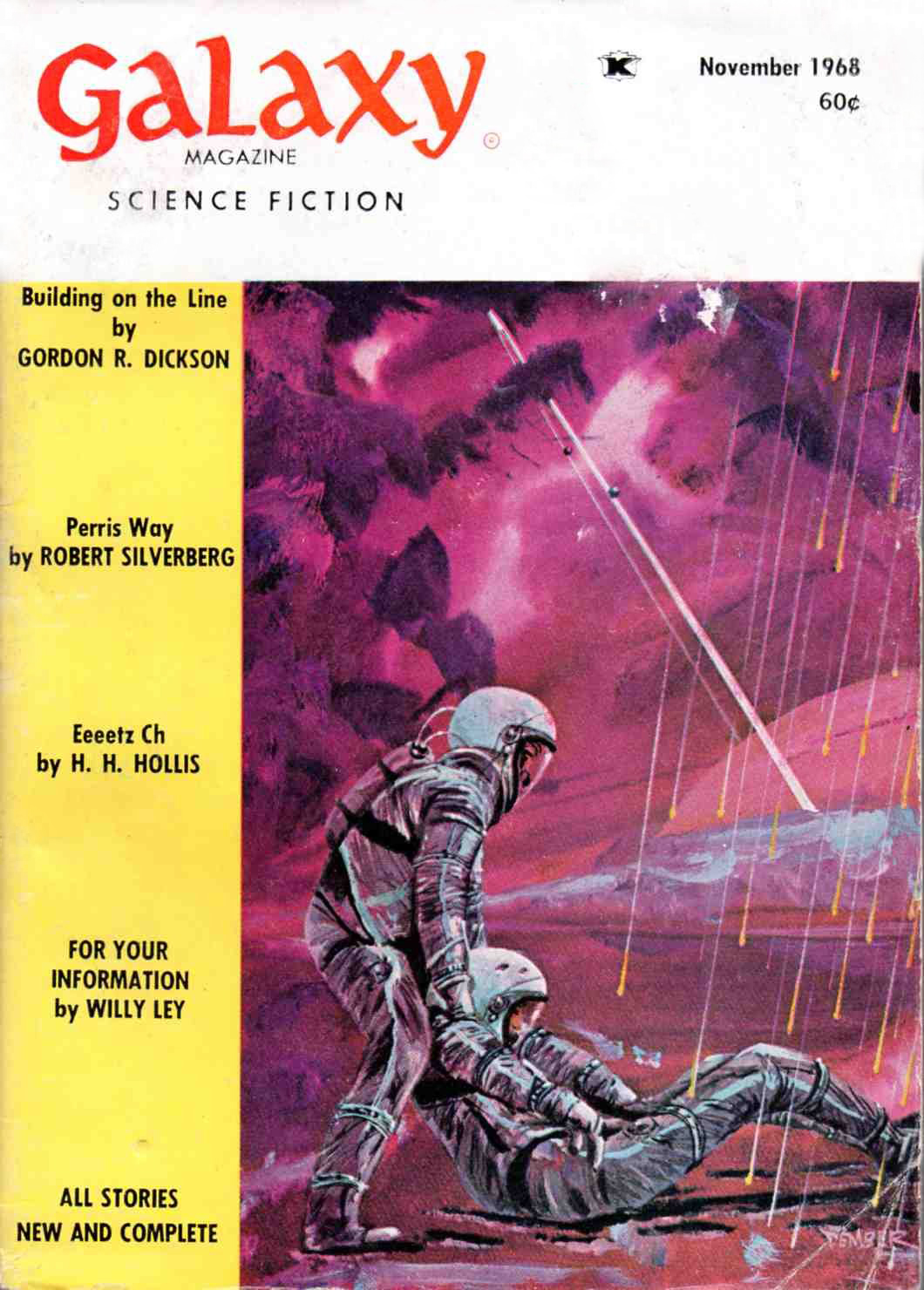

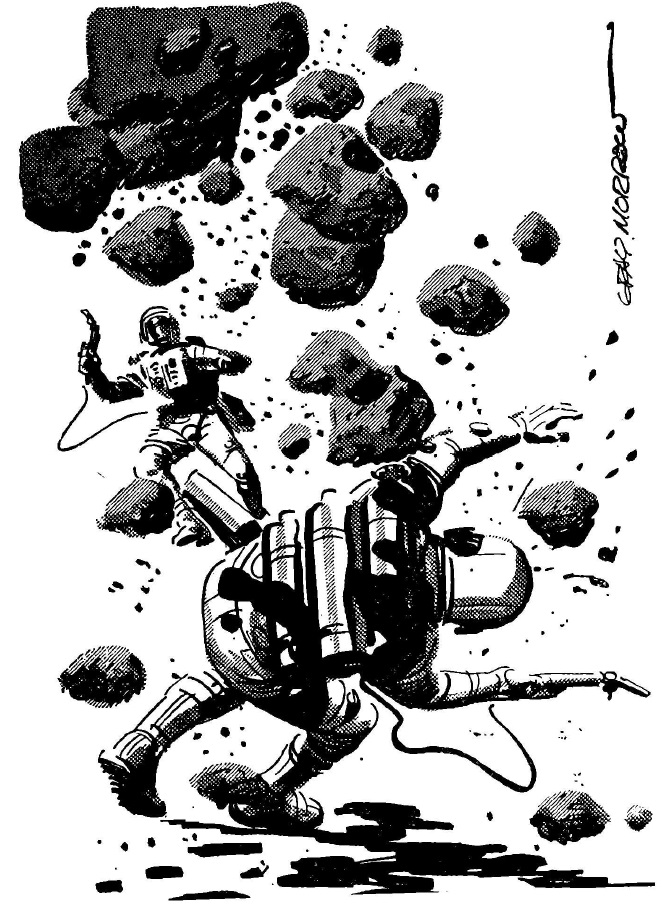
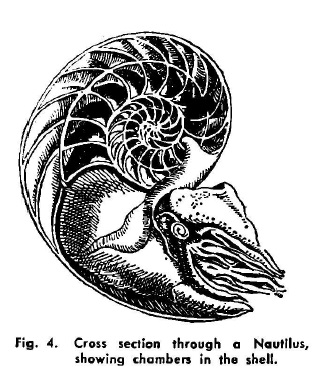
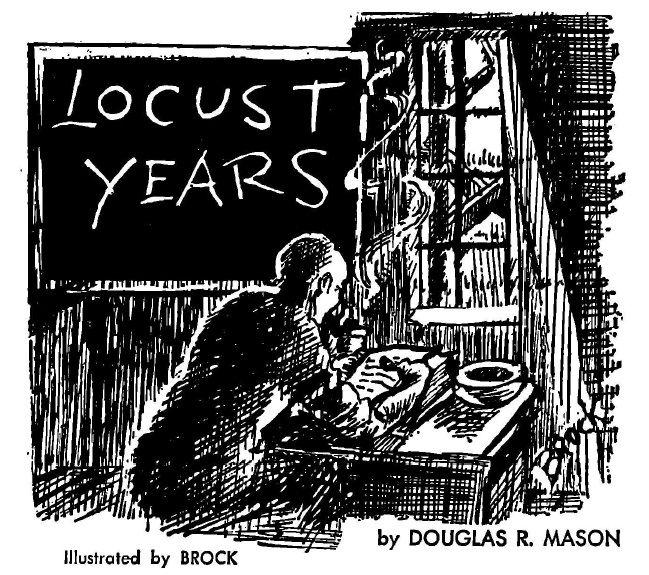
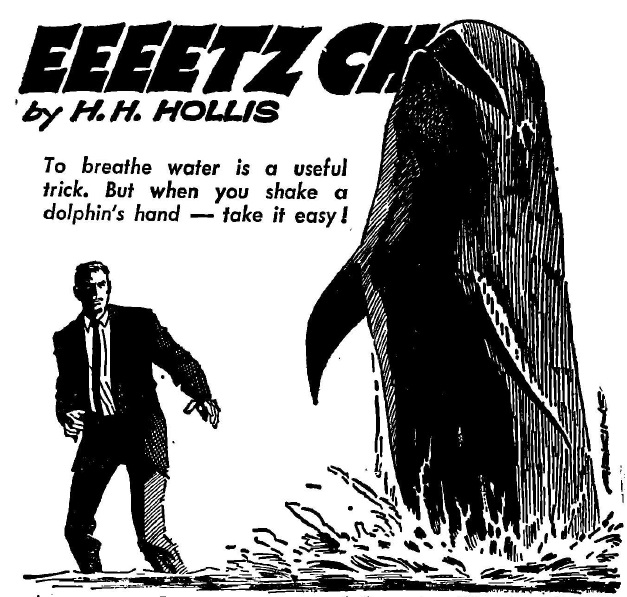


![[October 6, 1968] Snail on the Slope? (November 1968 <i>Amazing</i>)](https://galacticjourney.org/wp-content/uploads/2023/10/amz-1168-cover.png)


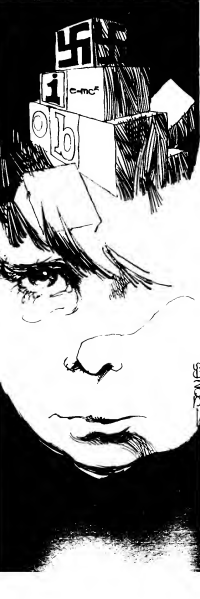


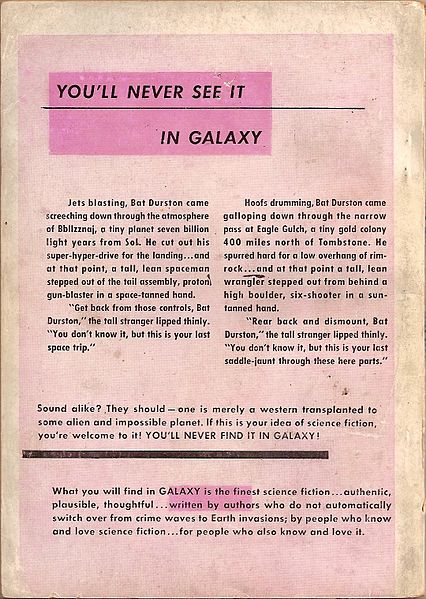


![[July 22, 1968] Shades and Shadows (August 1968 <i>Fantasy and Science Fiction</i>)](https://galacticjourney.org/wp-content/uploads/2023/07/680722cover-664x372.jpg)





![[March 20, 1968] Missed opportunities (April 1968 <i>Fantasy and Science Fiction</i>)](https://galacticjourney.org/wp-content/uploads/2023/03/680320cover-666x372.jpg)


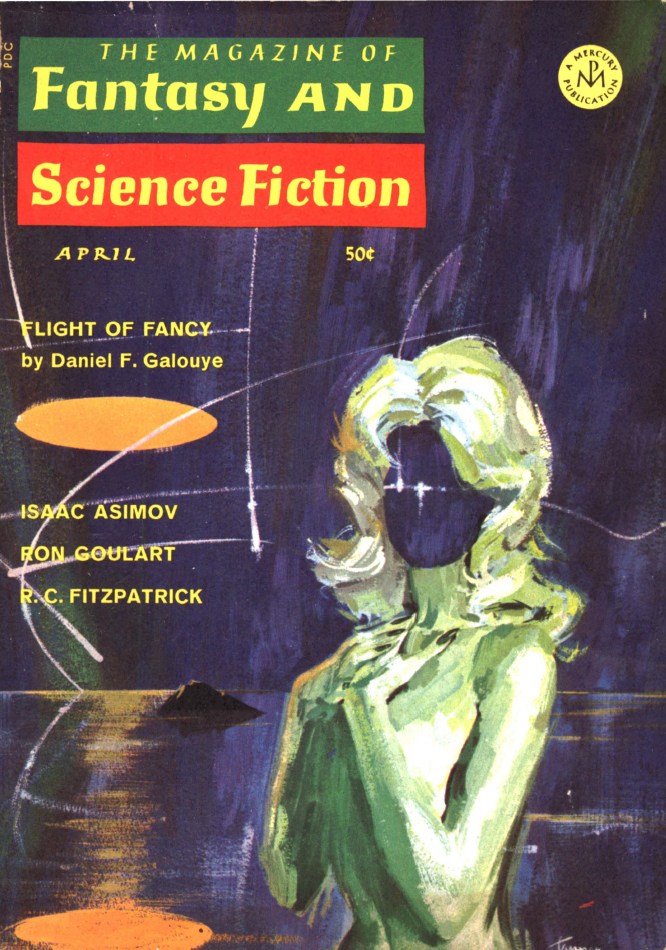



![[July 8, 1967] Family lines (August 1967 <i>Galaxy</i>)](https://galacticjourney.org/wp-content/uploads/2022/07/670710cover-672x372.jpg)





